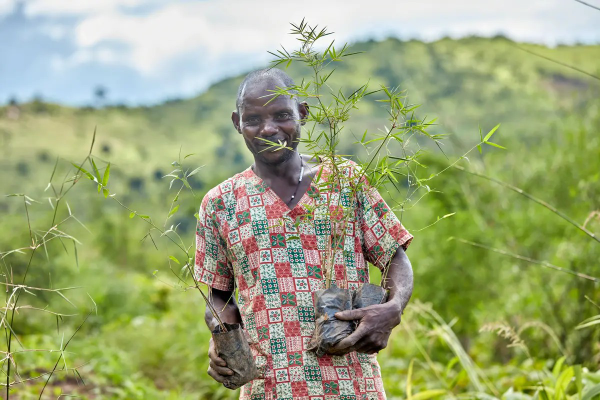Farmers in Uganda are poised to benefit from bamboo production training following an announcement by the Chinese government to establish a bamboo training and plantation project in the East African nation.
According to H.E Zhang Lizhong, the Chinese Ambassador to Uganda, Chinese bamboo experts will soon be coming to Uganda to facilitate the initiative.
“We will soon be sending around nine agricultural experts to Uganda to train local farmers on bamboo cultivation. Uganda has already set aside land for the plantation,” Zhang said.
He made this announcement on October 22, 2024, during the launch of the China-Africa Centre of Excellence at the National Crops Resources Research Institute (NaCCRI) in Namulonge. Ambassador Zhang also shared that demonstration centers would be established to assist farmers in starting to benefit from the project.
The China-Africa Centre of Excellence for Livestock, Crops, and Fisheries will focus on perennial rice, a variety that enables farmers to harvest multiple times from a single planting.
This innovation is expected to boost productivity, reduce labor demands, and promote sustainable food security, agricultural transformation, and improved nutrition for Uganda, the region, and beyond.
The project is a partnership between the National Agricultural Research Organization and BGI Group, a Chinese genetics research company.
Bamboo: a potential ‘green gold’
According to the United Nations (UN), bamboo is Africa’s potential ‘green gold and a silver bullet for design and architecture that is already attracting a global market but yet to be fully realised in the continent.
The highly versatile giant grass, capable of thriving in nearly any climate and even the poorest soils, has existed for centuries in Asia, Latin America, and parts of Africa. Despite being the fastest-growing plant on earth—some species reaching growth rates of up to one meter per day—its vast potential remained largely untapped for many years, states the organisation.


